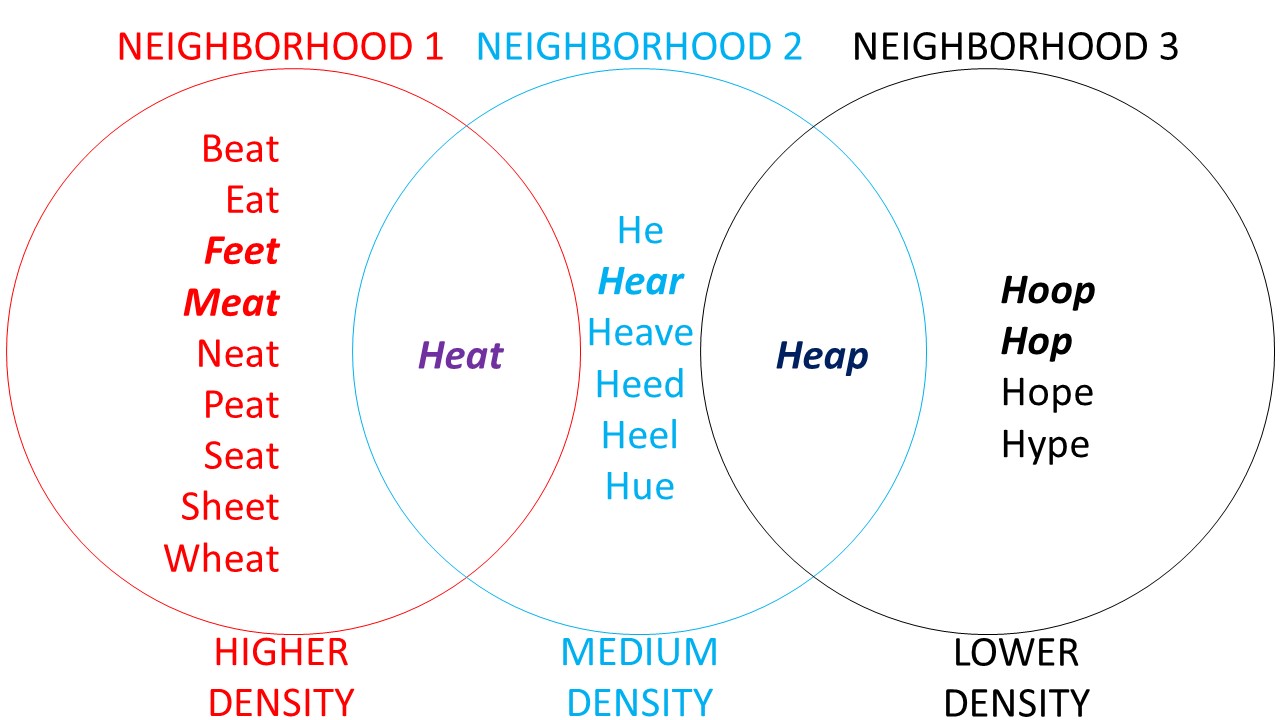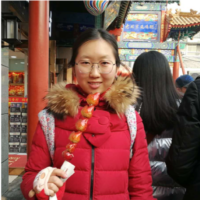They might have a high neighborhood density. Neighborhood density refers to the number of different words that can be made by changing, adding, or deleting one basic unit of sound (phoneme). In linguistics, a neighborhood is made of all the words that sound similar.

The words “heat,” “feat,” and “meat” are all in the same neighborhood, as they all differ by one sound (h, f, m). “Heat,” “heap,” and “hear” are in another neighborhood, as they differ only by their last sound (t, p, r), as do “Heap,” “Hoop,” and “Hop” which differ by their middle sound (ea, oo, o). Because words that share the same neighborhood are only one basic unit of sound apart, they are often pronounced similarly.
Neighborhoods that contain many words are considered to have high neighborhood density, and those with fewer neighboring words have lower density. Shorter words tend to have denser neighborhoods than longer words. How many neighbors does the one-syllable word “tea” have? How about the three-syllable word “banana”? Or the twelve-syllable word “antidisestablishmentarianism”?
Researchers have found that neighborhood density has an effect on which words babies learn as they grow up. The same paper also shows that neighborhood density has different effects on word learning for children who are different ages and who have different vocabulary sizes. Even though children can hear subtle differences between sounds, they find it harder to learn new words that sound like words that they already know, which is how a toddler might end up saying “baby soup” instead of “bathing suit,” or making other completely adorable mistakes.

Jing Liu
Author
Jing is a rising junior majoring in psychology and statistics. She is interested in how children acquire their first words and categorize them into their existing network of knowledge.